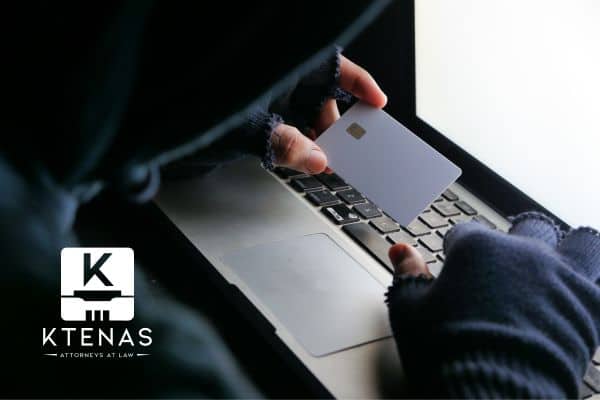Alternative Sentencing Options for Drug Charges in Chicago
2025-04-23T13:15:00
The penalties for grand larceny in Illinois are very serious. The charge severity depends on the value of the theft of money or property. Penalties for theft may be heightened in cases where the victim is elderly or disabled or has suffered bodily harm. Convicted individuals may pay financial restitution to their victims and may face difficulty finding employment or housing.

At Ktenas Law, our criminal defense lawyers offer legal assistance for cases involving grand larceny, a serious crime with both civil and criminal record consequences. Call today for a free consultation at (312) 756-8652!
Theft in the state of Illinois is a serious legal matter. It covers anything from larceny to embezzlement, to petty theft, retail theft, auto theft, armed robbery, and even identity theft. The law is specific about what qualifies as a theft offense, including taking unauthorized control over someone else’s money or property, using deception or threat, or receiving stolen property which one should have had reasonable evidence as being stolen. Depending on the severity of the offense, an individual could face stiff theft penalties including fines and jail time accordingly.

Ktenas Law has experience with all kinds of theft laws in Illinois and can provide advice to those who find themselves involved in charges of theft. With years of practice in theft charges, they are available to defend those accused of committing larceny offenses by thoroughly explaining their rights and options under Illinois law.
With the right legal representation, individuals accused of felony theft can seek a resolution that offers fair restitution for damages caused while avoiding prison time.
A larceny is a common form of theft that involves the taking of property belonging to another person with the sole intent to deprive them of their possessions. The crime usually requires a permanent intent, such as transferring ownership or benefit from the stolen item to oneself. Several elements must be present for larceny: the perpetrator must take and carry away personal property or real property belonging to another without their permission and with an intent to permanently deprive that person.

The penalties and punishments for larceny can range from a fine or probation up to lengthy jail time depending on factors such as the value of the stolen goods, any criminal history of the perpetrator, and if violence was used to commit the crime. A prosecutor will take into account these factors when deciding what type of punishment should be meted out for an individual convicted of larceny. Moreover, certain states also recognize certain types of aggravating factors that could lead to additional charges if committed alongside larceny – typically leading to harsher punishments such as additional fines or longer sentences.
Related Content: How do you get someone out of jail in Illinois?
Grand larceny covers several different types of theft, including taking items without the owner’s permission or consent, such as stealing from a store, shoplifting, burglary, and robbery. Grand larceny also covers taking things of considerable monetary value—typically valued over $500—or items of personal value not subject to market value, such as letters or documents.
To prove grand larceny in Illinois, prosecutors must be able to demonstrate that a defendant intentionally took property without permission from its rightful owner, with the intent to permanently deprive them of it. Depending on the value of the stolen item(s), grand larceny can range from a Class 4 felony (the lowest-level felony in Illinois) to a Class X felony (the most serious felony). Generally, the higher the value of the property stolen, the harsher the punishment.

Grand larceny is a serious criminal offense in Illinois and can result in severe penalties for those found guilty. It is important to understand that if accused of this crime, you should contact a legal professional as soon as possible to ensure your rights are protected and your best interests are represented
If you’ve been charged with grand larceny in the state of Illinois, you need to take it seriously and get help from an experienced attorney as soon as possible. A conviction for grand larceny can result in serious penalties, including jail time and hefty fines.
Ktenas Law has a successful track record and offers legal representation for individuals facing grand larceny charges. Our lawyers specializing in criminal defense possess considerable experience and are available to provide assistance. Contact our office today at (312) 756-8652 to schedule a free consultation and learn more about how we can help you.

2025-04-23T13:15:00

2025-04-07T11:50:40

2025-03-24T11:55:03

